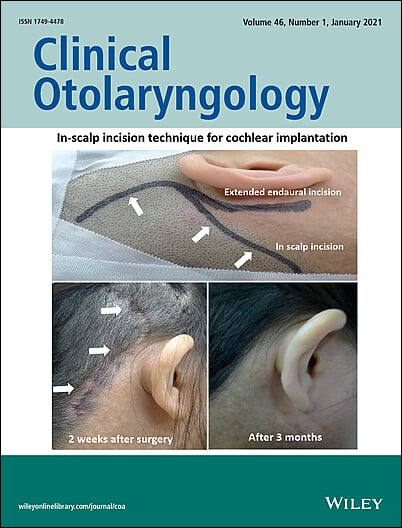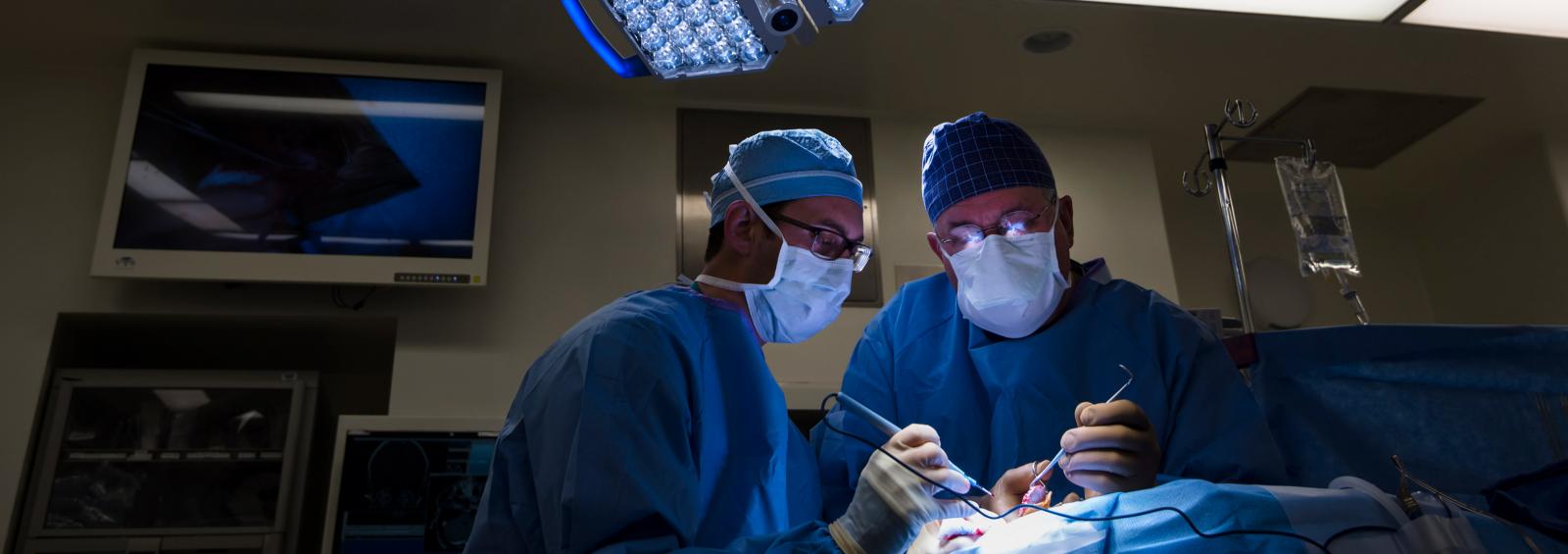In-Depth Look at Otolaryngology and Its Role in Treating Hearing Disorders
Wiki Article
Discovering the Field of Otolaryngology: What to Anticipate When You Consult an ENT
Otolaryngology, generally referred to as ENT, includes the diagnosis and treatment of ear, nose, and throat problems. For those experiencing relevant problems, speaking with an ENT expert can supply clearness and relief. Recognizing what to expect throughout such assessments is crucial for reliable communication and care. This introduction will certainly describe key facets of the ENT experience, including typical reasons for check outs and the procedures associated with diagnosis and therapy.
Recognizing Otolaryngology: An Overview
Otolaryngology, typically described as ENT (Throat, ear, and nose) medication, is a specialized branch of medicine that focuses on the medical diagnosis and therapy of conditions affecting these essential areas of the body. This area incorporates a large range of problems, including those related to hearing, balance, respiratory feature, and speech. Otolaryngologists are trained to manage both medical and medical treatments, making use of advanced strategies and modern technologies. Their competence expands beyond traditional conditions, attending to issues such as allergic reactions, sinus infections, and hearing loss. Additionally, they play a critical function in the monitoring of head and neck cancers, offering comprehensive treatment tailored to specific person requirements. In general, otolaryngology remains important for keeping wellness and high quality of life in affected individuals.Usual Reasons to See an ENT Expert
Numerous people seek the proficiency of an ENT specialist for a range of reasons, showing the varied nature of conditions that influence the ear, nose, and throat. Typical problems include persistent sinus problems, which typically causes consistent nasal blockage and face discomfort. Allergic reactions and their associated symptoms, such as sneezing and itching, likewise motivate sees to these specialists (Hearing). Hearing loss, whether unexpected or progressive, is one more considerable reason for assessment. In addition, people might seek evaluation for throat problems, consisting of consistent hoarseness or swallowing difficulties. Rest apnea, defined by disrupted breathing throughout rest, is frequently addressed by ENT specialists too. Each of these problems highlights the significance of specialized treatment in handling intricate ENT-related health concerns
Preparing for Your ENT Visit
When planning for an ENT appointment, it is necessary to gather relevant info and take into consideration any type of specific concerns. Clients ought to assemble an in-depth medical history, consisting of previous ear, nose, or throat problems, surgical treatments, and present medicines. Documenting symptoms-- such as intensity, duration, and regularity-- can supply valuable insights for the ENT specialist. Additionally, people should prepare a checklist of questions they desire to ask, guaranteeing that all worries are attended to during the go to. Bringing along any kind of pertinent clinical records or test outcomes can further aid the ENT in understanding the patient's condition. People need to verify their appointment information, consisting of place, time, and date, to decrease any last-minute complication. Proper preparation can boost the performance of the appointment and bring about far better outcomes.What to Anticipate Throughout the Consultation
As the consultation starts, the patient can anticipate to involve in a thorough conversation with the ENT specialist regarding their signs and clinical history. The expert will ask about the duration, regularity, and intensity of signs and symptoms such as hearing loss, nasal congestion, or sore throat. Additionally, the person's previous clinical conditions, medicines, and any type of appropriate family background will be assessed, assisting the expert in developing a complete understanding of the person's health. The ENT may additionally ask concerning way of living aspects, such as exposure to allergens or toxic irritants. This open discussion establishes a structure for the examination, making certain that the client's worries are addressed and setting the phase for any needed evaluations or suggestions for treatment.
Analysis Examinations and Procedures in Otolaryngology
A variety of diagnostic examinations and procedures are vital in otolaryngology to precisely assess and identify problems influencing the nose, ear, and throat. Typical tests include audiometry, which determines hearing feature, and tympanometry, evaluating middle ear pressure. Nasal endoscopy permits visualization of the nasal flows and sinuses, while laryngoscopy analyzes the throat and singing cords. Imaging methods, such as CT scans and MRIs, give comprehensive views of head and neck structures. Allergy screening might additionally be performed to recognize triggers for sinus or breathing issues. These diagnostic tools make it possible for ENT specialists to create a thorough understanding of individuals' conditions, making sure tailored and efficient monitoring plans. Proper diagnosis is crucial for effective therapy outcomes in otolaryngology.Treatment Options Offered by ENT Specialists
ENT professionals provide a range of treatment alternatives customized to address certain problems affecting the throat, nose, and ear. These therapies range from conventional methods, such as drug and lifestyle alterations, to more invasive treatments. For example, allergies might be taken care of with antihistamines or immunotherapy, while chronic sinusitis may need nasal corticosteroids or sinus surgical treatment. For hearing loss, ENT experts commonly suggest listening devices or medical treatments like cochlear implants. In cases of throat conditions, alternatives can consist of speech treatment or surgical treatments to remove obstructions. Additionally, they might supply advice for handling sleep apnea, consisting of using CPAP tools or medical treatments. Overall, the objective is to boost patients' quality of life with personalized care and efficient treatment methods.When to Look For Follow-Up Treatment With an ENT
When to look for follow-up treatment with an ENT specialist is vital for handling continuous symptoms or complications related to ear, nose, and throat conditions, recognizing. People ought to consider arranging a follow-up appointment if signs and symptoms persist in spite of initial therapy, such as chronic ear discomfort, nasal congestion, or throat pain. Adjustments in hearing, balance problems, or unusual nasal discharge may also warrant more analysis. Furthermore, if a person experiences adverse effects from recommended medications or has undertaken an operation, follow-up care is necessary to keep an eye on healing and resolve any type of worries. Prompt appointments can assure effective monitoring of problems, stop possible issues, and offer assurance regarding one's health and wellness. Seeking follow-up care advertises positive health and wellness monitoring in otolaryngology.Regularly Asked Questions

What Qualifications Should I Search for in an ENT Expert?
When looking for an ENT professional, one should try to find board certification, relevant experience, and strong individual evaluations. Furthermore, efficient interaction skills and a caring strategy can greatly improve the general treatment experience.Exactly how Do I Pick the Right ENT for My Requirements?
Picking the appropriate ENT professional involves assessing their qualifications, experience, and individual testimonials (Voice). It is vital to contemplate their communication style and strategy to therapy, ensuring they straighten with the individual's specific health needs and choicesAre There Any Kind Of Threats Connected With ENT Procedures?
The dangers connected with ENT treatments might consist of infection, bleeding, anesthetic difficulties, and prospective damages to surrounding structures. People ought to review these dangers with their doctor to comprehend individual concerns and assurance educated choices.Exactly How Can I Manage Anxiety Prior To My ENT Appointment?
To handle stress and anxiety prior to a consultation, people can practice deep breathing exercises, imagine positive end results, prepare concerns in advancement, and here seek support from friends or household, fostering a feeling of confidence and peace.What Should I Do if I Experience Adverse Effects From Therapy?
The person needs to quickly report them to their medical care provider if side impacts from treatment occur. Modifications to treatment or added interventions might be required to ensure safety and security and efficiency in handling their problem - Otolaryngology. As the consultation begins, the individual can expect to engage in a comprehensive conversation with the ENT professional about their symptoms and clinical background. These diagnostic devices allow ENT specialists to create a thorough understanding of people' problems, ensuring customized and reliable management plans. ENT experts provide a selection of treatment options tailored to deal with specific problems impacting the throat, ear, and nose. When looking for an ENT expert, one ought to look for board qualification, relevant experience, and strong individual reviews. Selecting the appropriate ENT professional involves evaluating their qualifications, experience, and client reviewsReport this wiki page